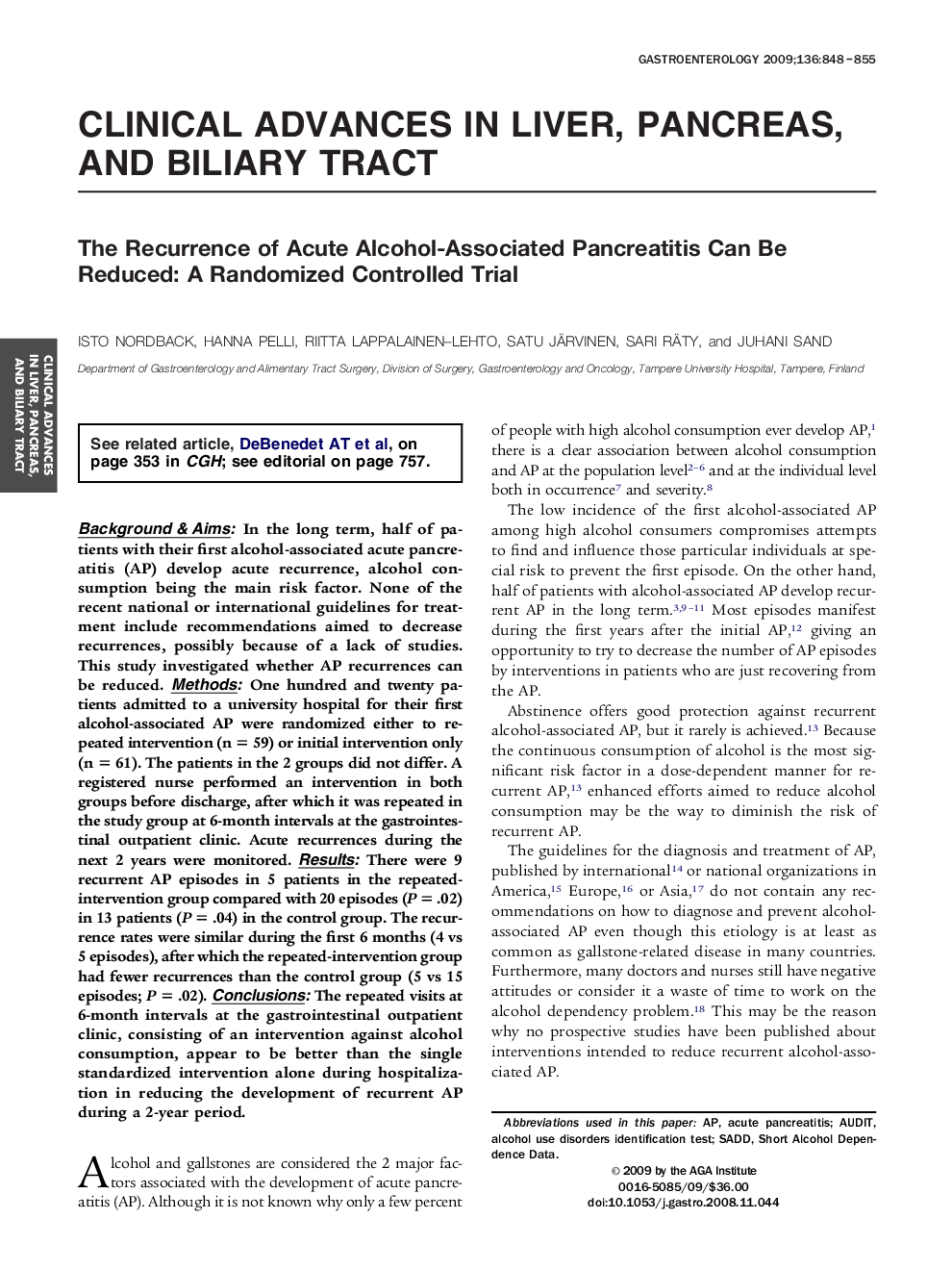| Article ID | Journal | Published Year | Pages | File Type |
|---|---|---|---|---|
| 3298722 | Gastroenterology | 2009 | 8 Pages |
Background & AimsIn the long term, half of patients with their first alcohol-associated acute pancreatitis (AP) develop acute recurrence, alcohol consumption being the main risk factor. None of the recent national or international guidelines for treatment include recommendations aimed to decrease recurrences, possibly because of a lack of studies. This study investigated whether AP recurrences can be reduced.MethodsOne hundred and twenty patients admitted to a university hospital for their first alcohol-associated AP were randomized either to repeated intervention (n = 59) or initial intervention only (n = 61). The patients in the 2 groups did not differ. A registered nurse performed an intervention in both groups before discharge, after which it was repeated in the study group at 6-month intervals at the gastrointestinal outpatient clinic. Acute recurrences during the next 2 years were monitored.ResultsThere were 9 recurrent AP episodes in 5 patients in the repeated-intervention group compared with 20 episodes (P = .02) in 13 patients (P = .04) in the control group. The recurrence rates were similar during the first 6 months (4 vs 5 episodes), after which the repeated-intervention group had fewer recurrences than the control group (5 vs 15 episodes; P = .02).ConclusionsThe repeated visits at 6-month intervals at the gastrointestinal outpatient clinic, consisting of an intervention against alcohol consumption, appear to be better than the single standardized intervention alone during hospitalization in reducing the development of recurrent AP during a 2-year period.
